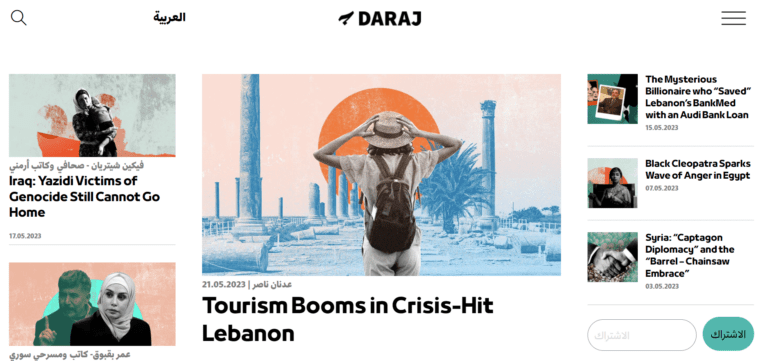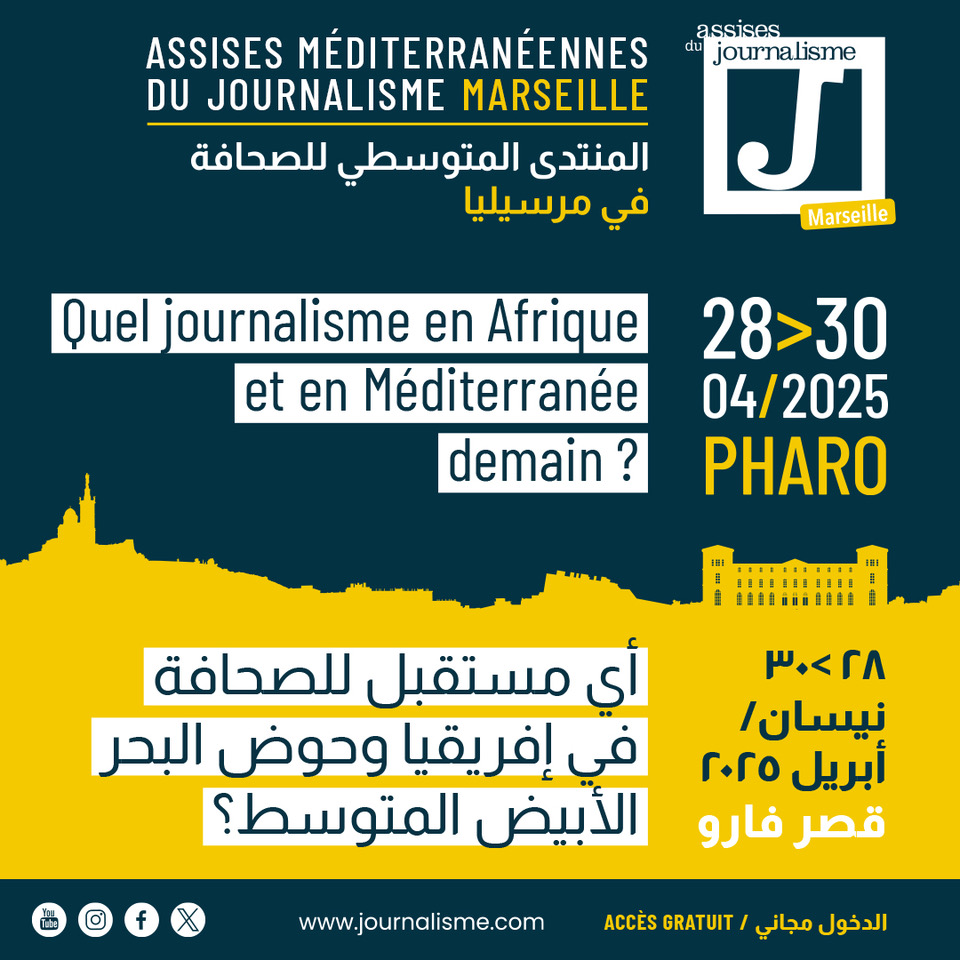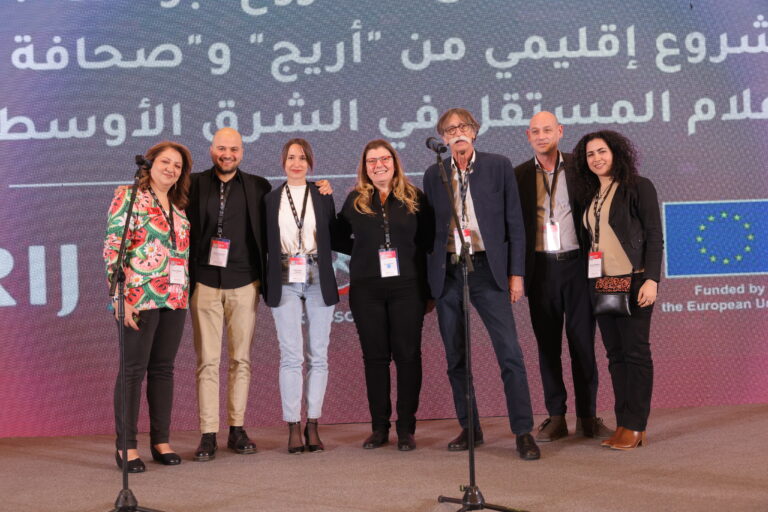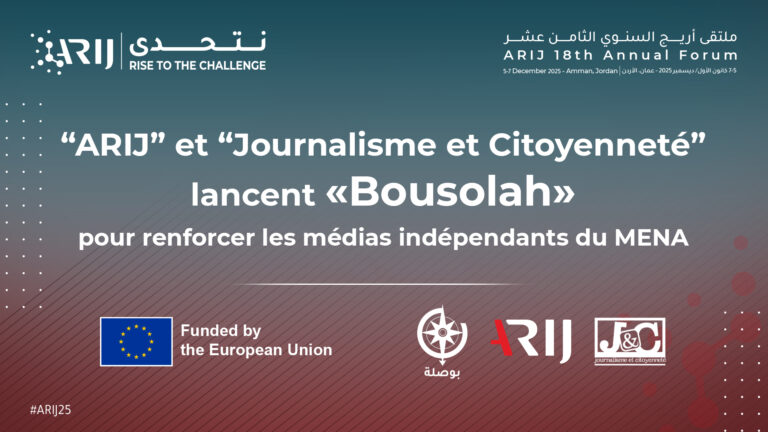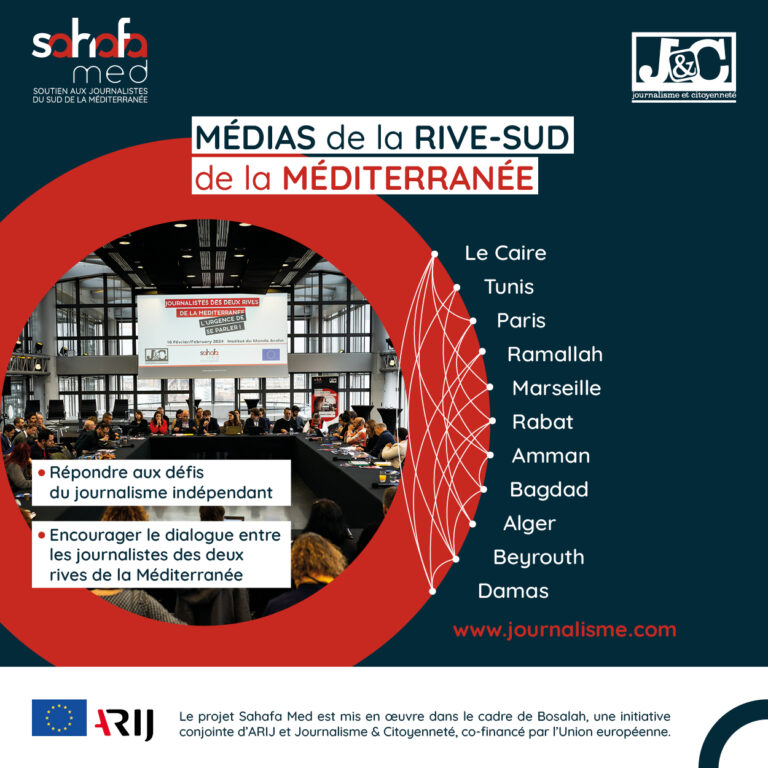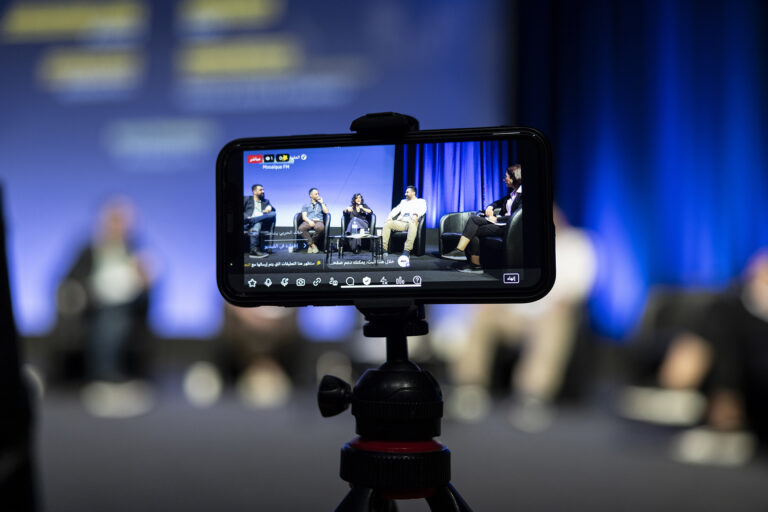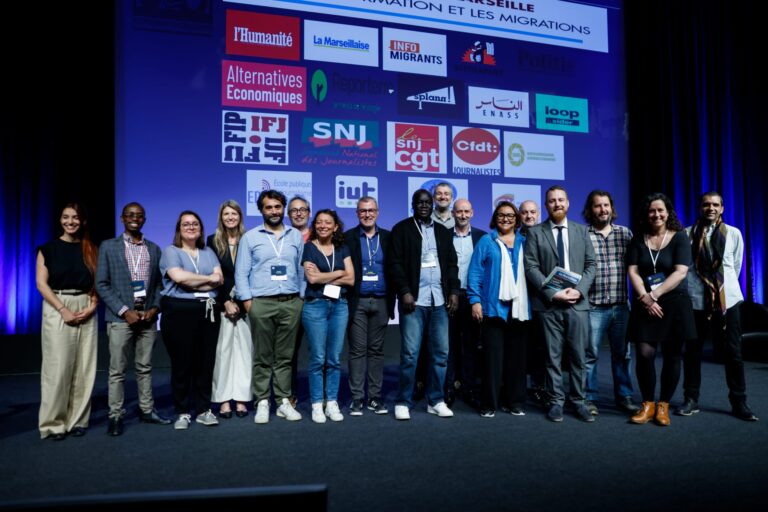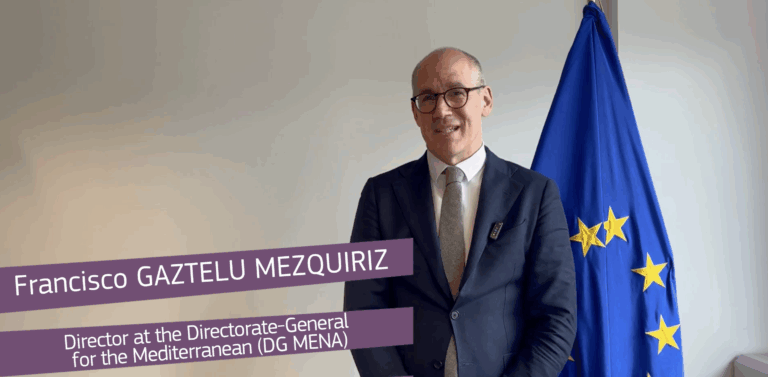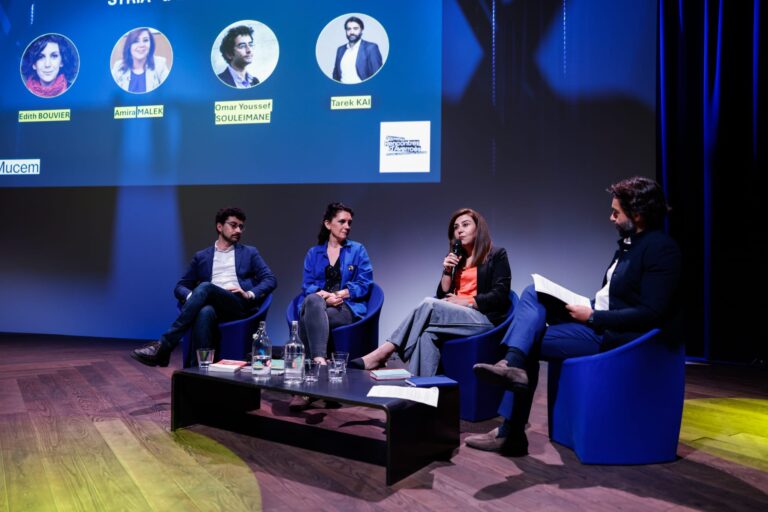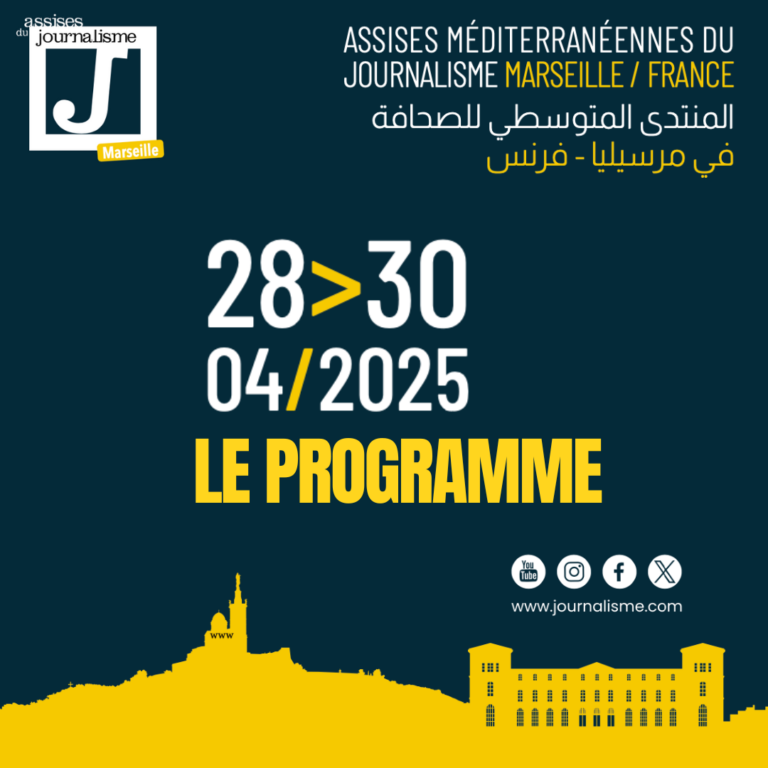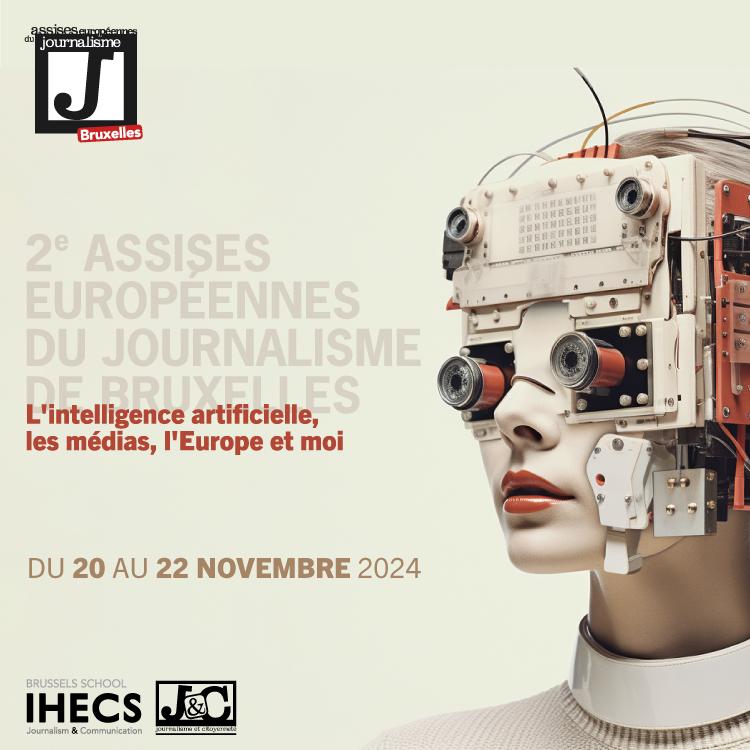In her office located in an old restored stone building in the trendy Mar Mickaël district of Beirut, Alia Ibrahim leads, like a true conductor, the team of journalists from DARAJ, a media outlet that has succeeded, in a few years, to conquer a growing audience throughout the Arab world. She is also in close contact with the DARAJ correspondents based throughout the region. The atmosphere is that of a boiling newsroom that smells of cardamom from the cups of Lebanese coffee that dot the journalists’ offices. An editorial team that lives as much at the time of political upheavals in Lebanon as those in Egypt, Iraq or other countries in the region. Here, we do not do journalism like elsewhere.
DARAJ, which is the word for a “staircase” in Arabic, is an independent online media that offers alternative journalistic contents in the Arabic language, free from the political and economic influences that control the mainstream media industry in the region. The idea of creating DARAJ was launched in 2016 by a group of journalists who felt that mainstream media were not adequately covering the Arab Spring movements in the region. Seven years later, a team of 27 journalists based in Beirut and a network of more than 300 freelance journalists from around the world are working together to bring quality journalism to life in Arabic through their platform. They focus on subjects that are rarely covered in the traditional media such as minority rights, environmental and climate issues, gender identities or even discrimination and violence against women, etc.
DARAJ is registered as a for-profit company, not to make money, but with the objective of eventually being financially viable enough to support and develop the initial ambition: the creation of quality journalistic content. At its launch, DARAJ was able to benefit from international funding which enabled the project to be set up. Today, DARAJ generates up to 30% of its total revenue from its various activities, such as consulting, content production, services, etc., while the remaining 70% comes from donors funding and partners to cover the operating costs of the organization (salaries, electricity bills, etc.).
DARAJ also receives grants to develop specific projects with media development actors. Its strategic funding approach allows DARAJ to remain viable and independent as well as transparent to its readers.
Alia Ibrahim, who previously worked in mainstream media before creating DARAJ, finds every day that working for an independent media allows her to move more freely, test, talk about certain topics, be more experimental and makes impact journalism real.
DARAJ is also developing its collaborations in the region. Thus, in partnership with other media such as Raseef22 (Lebanon) and alhuhood (Jordan), DARAJ has just launched the MOOR online platform to discuss water-related crises. This new experimentation initiative aims to inform young people about a specific subject, the problem of water, by using new media tools (gifs, videos, infographics, podcasts, etc.).
Development of a “sustainable media” and relations with donors
For Alia Ibrahim, the development of the media sector in the region must revolve around two axes: focusing on young people and innovators on the one hand; carry out long and in-depth strategic reflections in order to develop and consolidate sustainable media projects on the other hand.
Prior to 2011, the concept of independent media did not exist in the region and all eyes were on mainstream media. The Arab Springs have given rise to the need to cover the news of the Arab world differently. Public expectations have evolved. This is what led journalists to create new media such as DARAJ. In a few years, the media ecosystem in the Arab world has become more mature and more responsible. Today, there are many alternative and innovative media projects like DARAJ. According to Alia Ibrahim, these media need more investments.
She further considers that the secret to a media outlet’s financial viability lies in a mature partnership with donors and funders. It took years for DARAJ to identify its strategies with all its partners. This now allows the team to create a relationship of trust with donors and funders who are true media partners. But Alia Ibrahim believes that it is not easy to adopt one and the same working method with all the donors who come from different countries, who have different cultures, varied development strategies, not to mention the rules and reporting systems that are not unified. “The best way to manage these differences is to communicate more with them”, tempers Alia Ibrahim who is never discouraged and who puts all her energy into convincing them. Because she is certain of it: the future of quality media and journalism in the Arab world is ahead of us… The message is clear: DARAJ and his teams have not yet reached the top of the stairs and many things still remain to accomplish !

